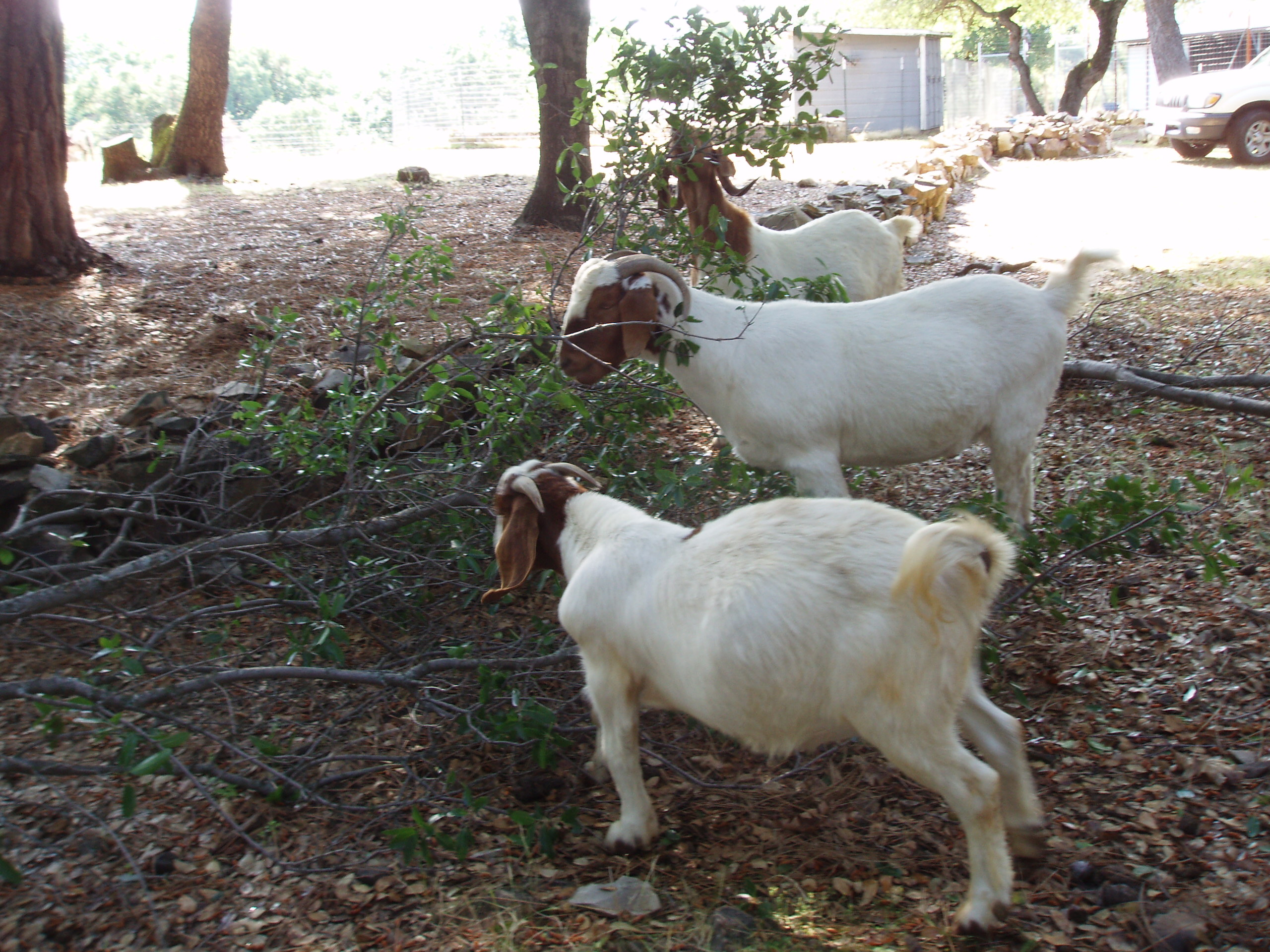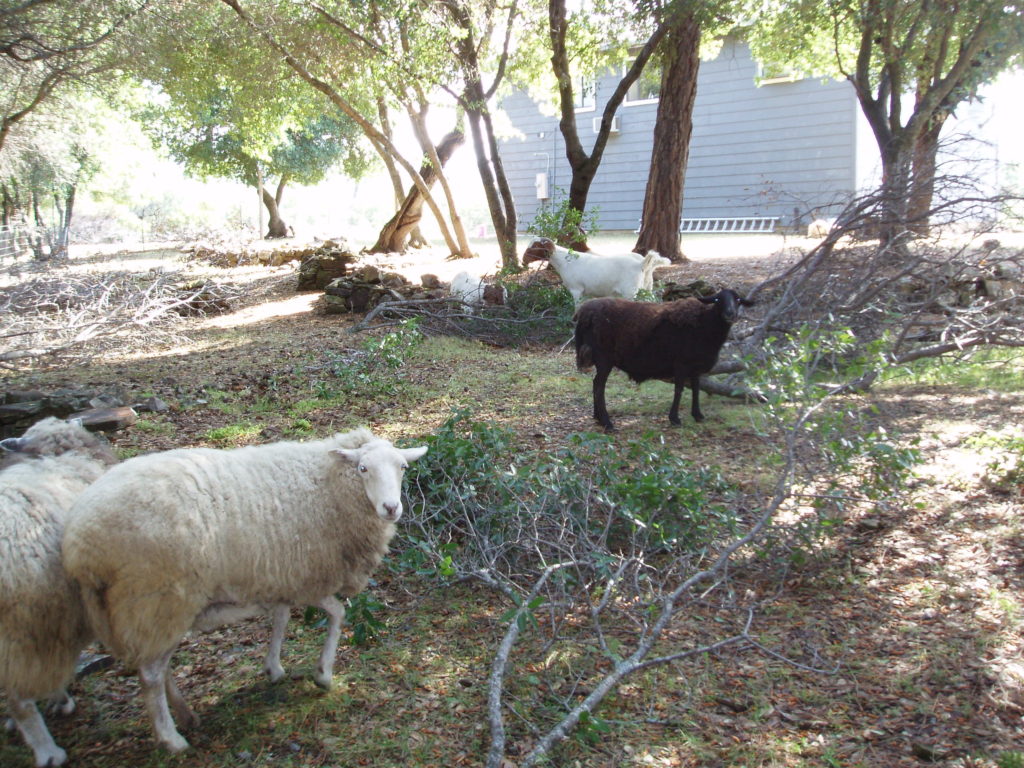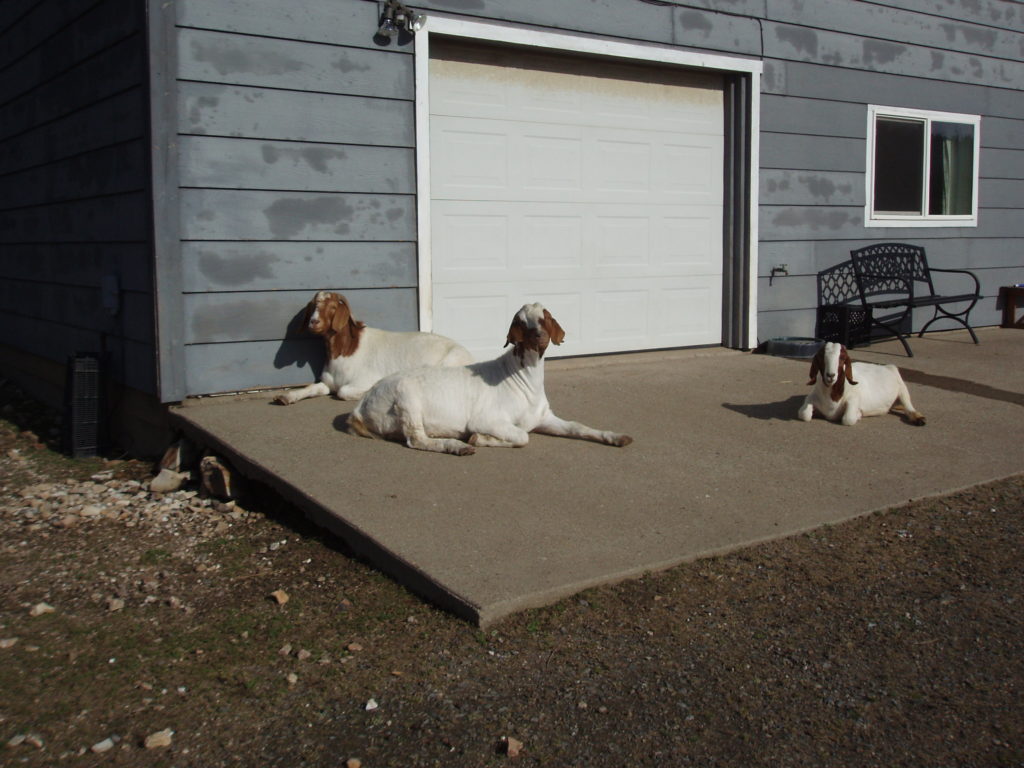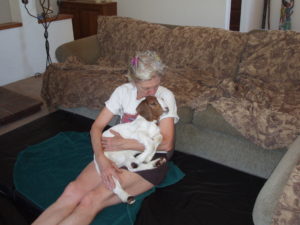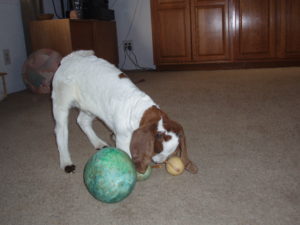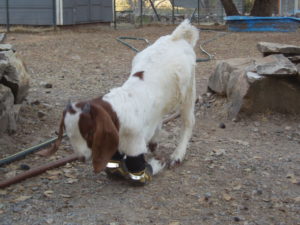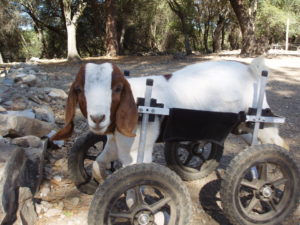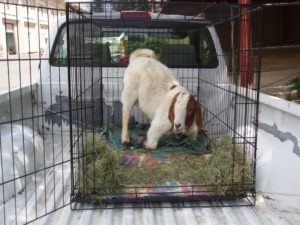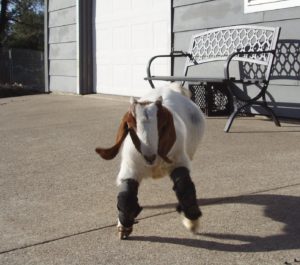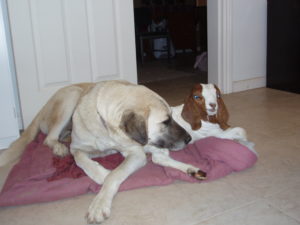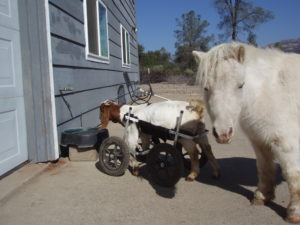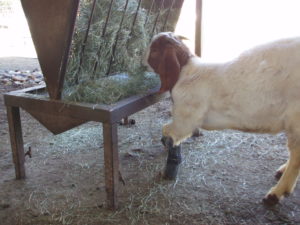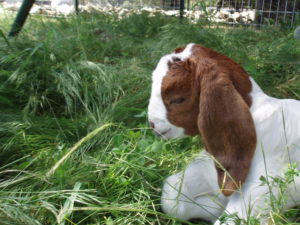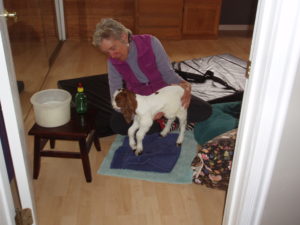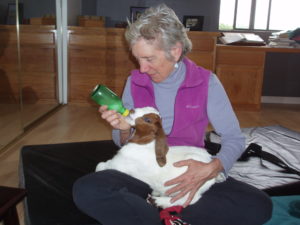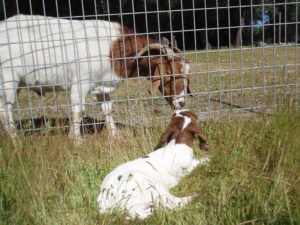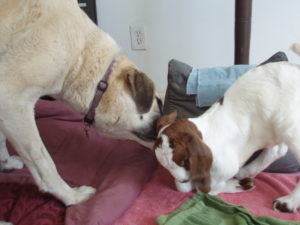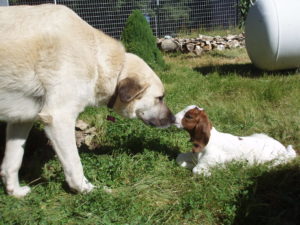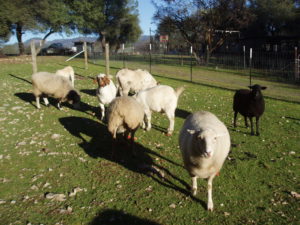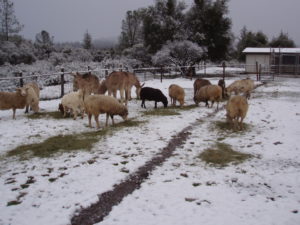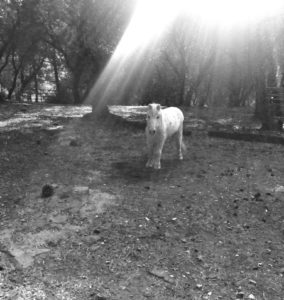Berwyn the goat began to lose weight. I thought it was because of his age, 10, which is elder for a large Boer goat. But then he stopped eating. Even treats he loved, apples and carrots, did not tempt him. After two days of this, I called the local veterinarian who makes ranch calls. She couldn’t come till the next day. By then he was having loose stool and looking skinnier than ever.
The vet did a blood draw, took a fecal sample, and gave Berwyn vitamin shots and antibiotics in case an infection was the issue. While waiting for the test results, I went to the local feed store and got special feed pellets for goats. He would have nothing to do with them. I went to another feed store and bought premium grass hay (grass hay is the sanctuary animals’ regular feed, but the load I had was rough and they weren’t thrilled with it). Berwyn smelled it and walked away.
The antibiotics seemed to kick in, though, because he began to take a few bites of carrots and apples, and then a bit of the new hay (still wouldn’t eat the pellets). I had ordered a 50 pound bag of organic oats from the health food store when he kept getting skinnier, but he wasn’t eating those either, though he had been enthusiastic before he got sick.
The test results showed a slightly elevated white blood cell count and some kind of disturbance in his liver/bile system. The very experienced lab technician thought it might be cancer. To determine that would require taking Berwyn to the UC Davis Vet Hospital (2 1/2 hours away) for an ultrasound. I wasn’t going to put him through that. Another round of antibiotics seemed to help at first, but then he stopped eating again. My approach on health issues is don’t accept the worst scenario unless you know for certain that it is so. Thus I wasn’t going with the idea of cancer.
Along with the premium hay, I had bought probiotics-containing goat treats and Berwyn nibbled a few of those. I started bringing him into the house to try to get him to eat. That way, I could give him a bowl of the goat pellets, which sheep cannot have, and he could eat at his own pace and in peace. He ate some, though not with much enthusiasm.
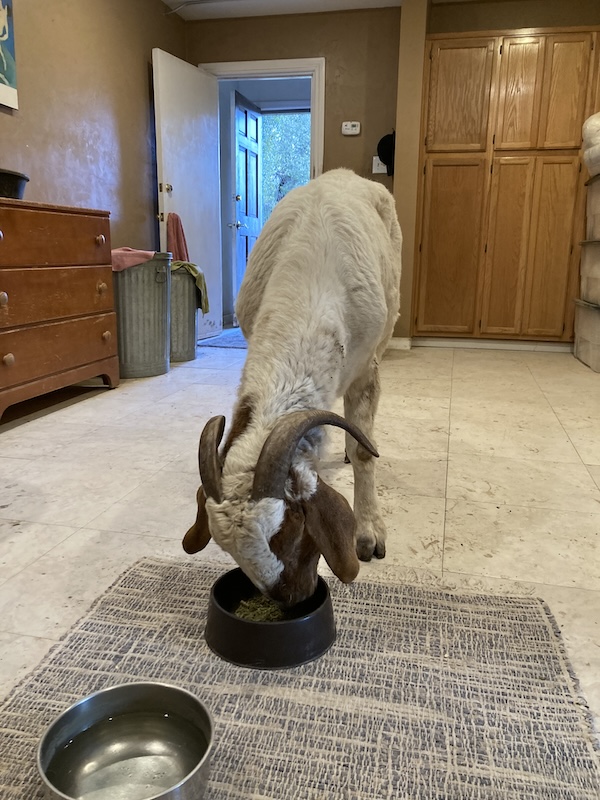
I went to bed thinking I needed to investigate substances that support the liver. The next morning, I woke up at 4 am with the word “lecithin” in my head. “That’s it!” I exclaimed. Lecithin is a liver-supporting nutrient. I knew this from my research in natural medicine and from a friend with hepatitis C who used to take it.
I made another trip to the health food store and bought a tub of lecithin powder, derived from sunflower seeds. I dissolved a tablespoon in water, poured it into a syringe, and squirted it into Berwyn’s mouth. He protested a little, but not much, and seemed to like the taste. I repeated it that night. The next day he began to eat, first a bowl of the oats and pellets, plus goat treats, apples, and carrots, then the day after, the premium grass hay. I let him into the hay barn to eat to his heart’s content, along with Caerwyn to keep him motivated in eating. Caerwyn did a great job of modeling how it’s done and raising Berwyn’s food competition instincts.
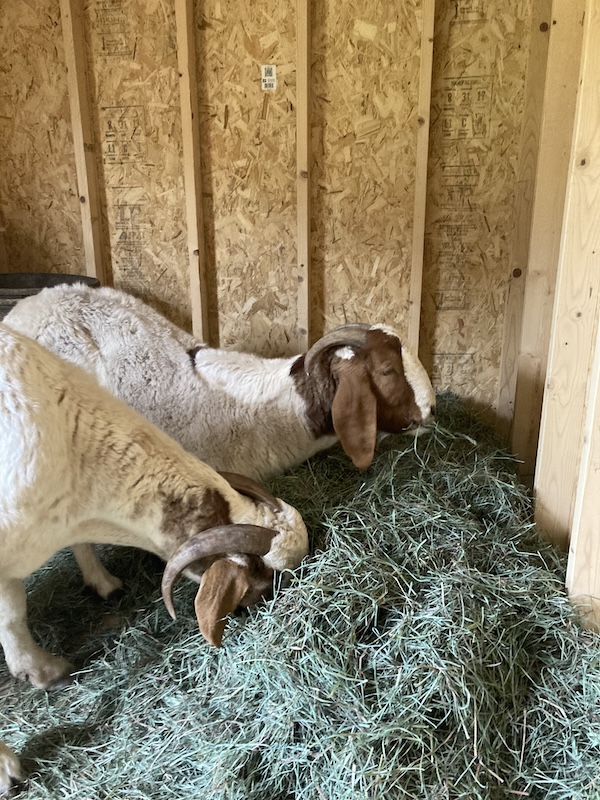
Now Berwyn is doing very well. He’s gets lecithin twice a day, is eating normally (with enthusiasm!), and has no symptoms of illness. I continue to feed him in the house so he can have a full bowl to help him gain back his weight. Plus he’s used to it now and knocks on the door to let me know he needs a mid-day snack.
I am so grateful for the guidance I receive on how to care for the animals. The universal archives downloaded the lecithin information for me while I slept. Big thanks to Berwyn for excellent healing, to Caerwyn for being his loyal recovery buddy, and to all the other animals on the sanctuary for their part in helping Berwyn get well.
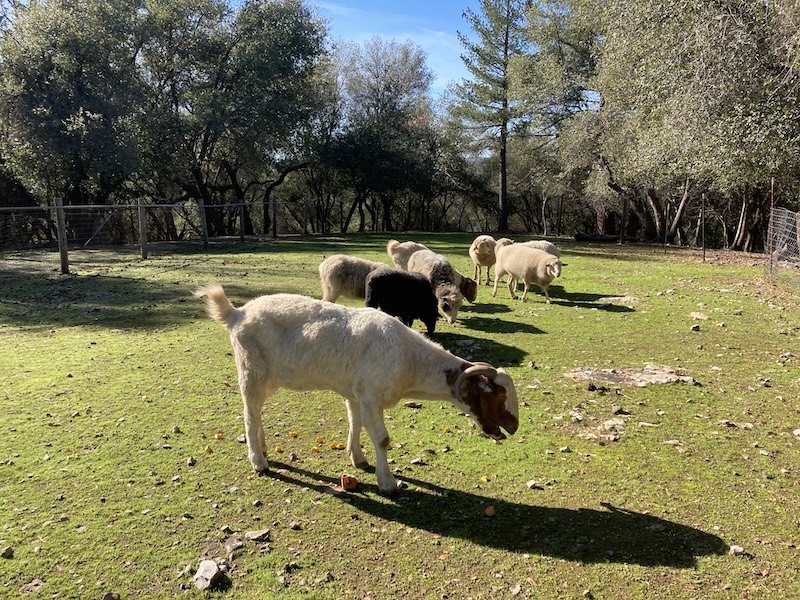

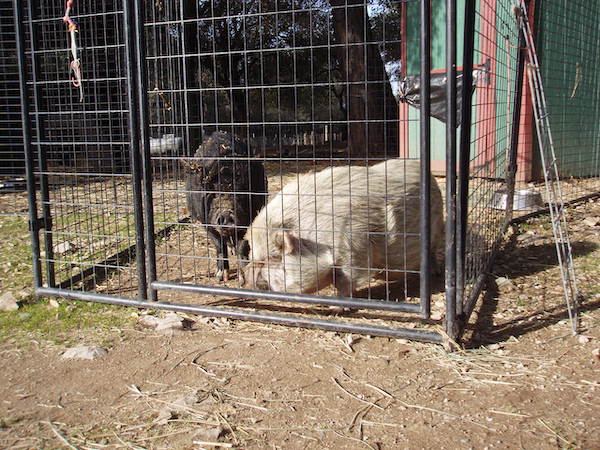
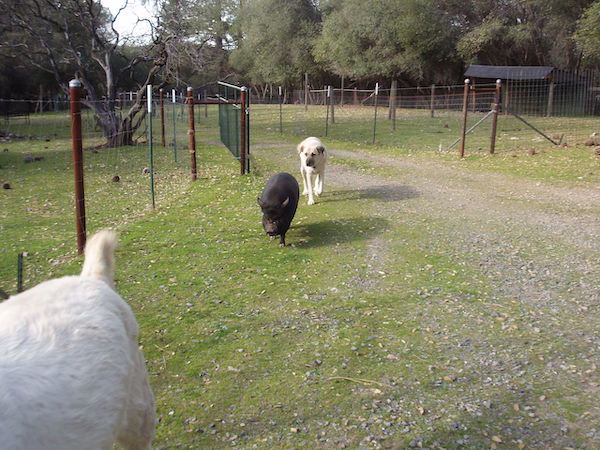
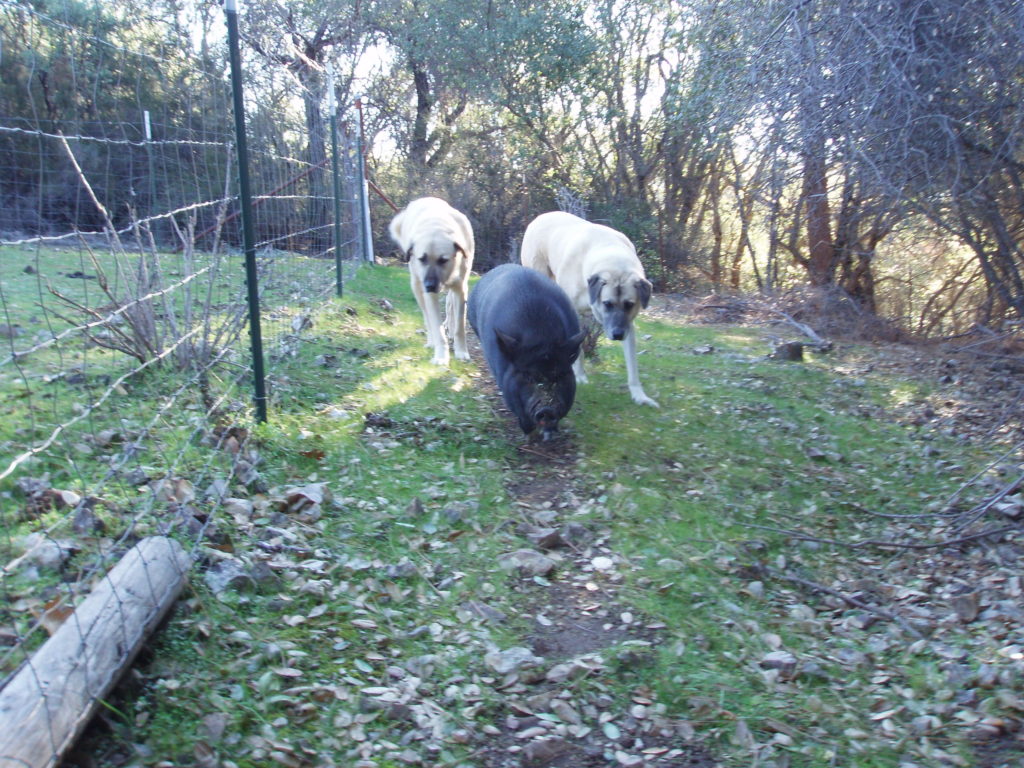
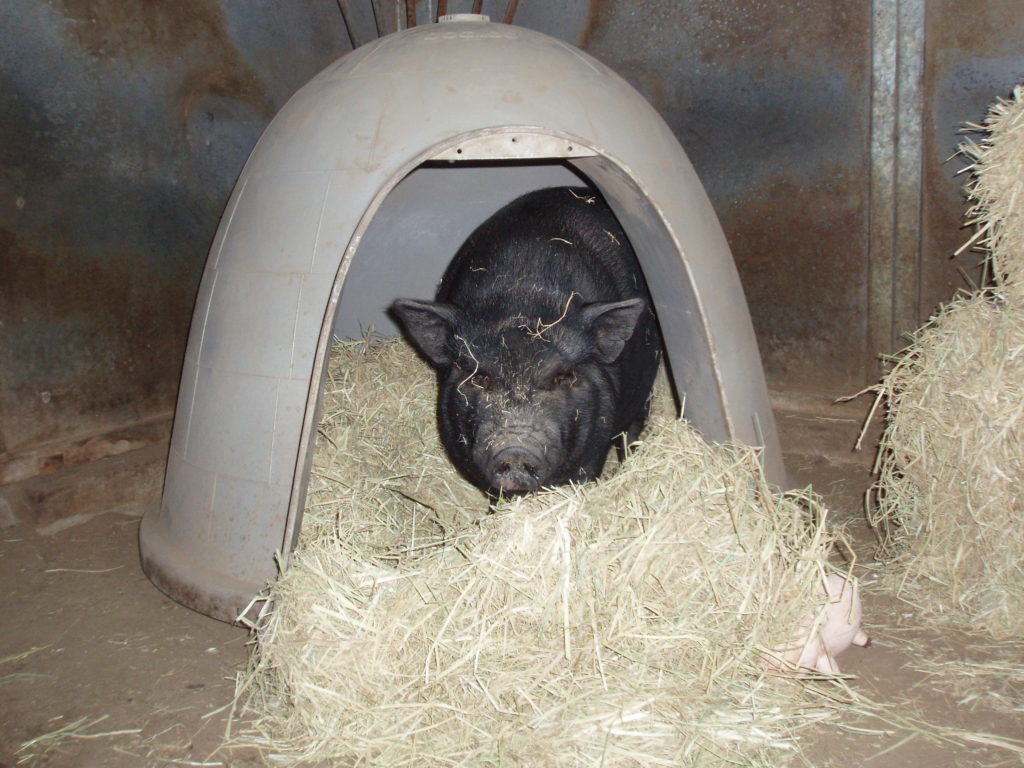
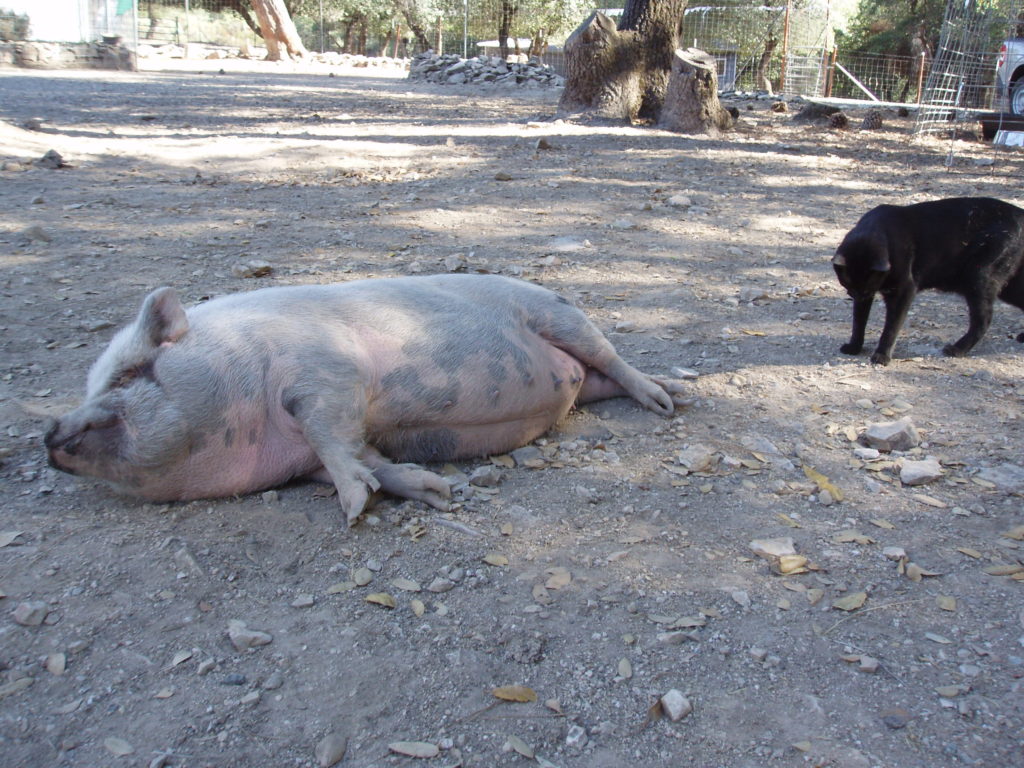
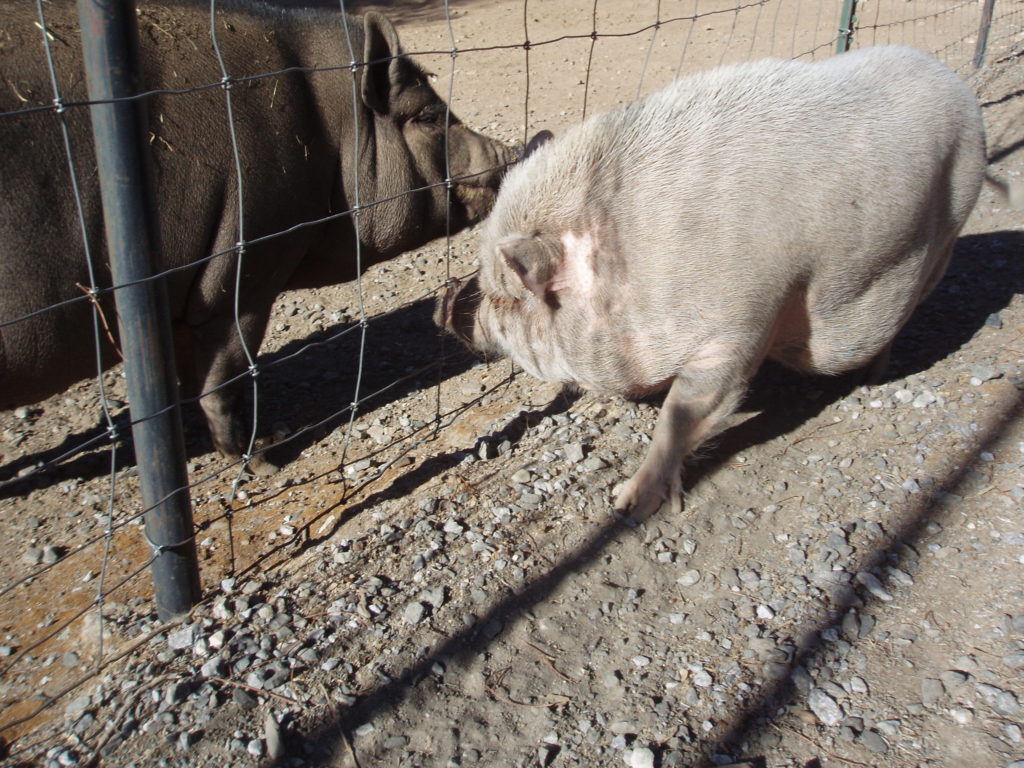
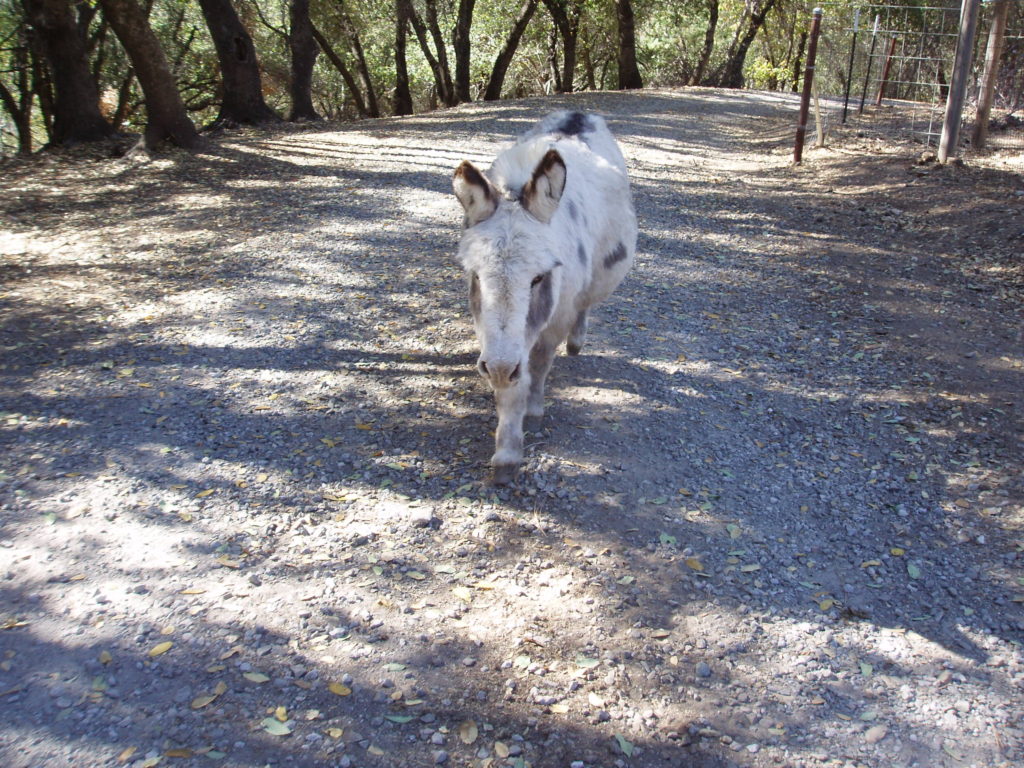
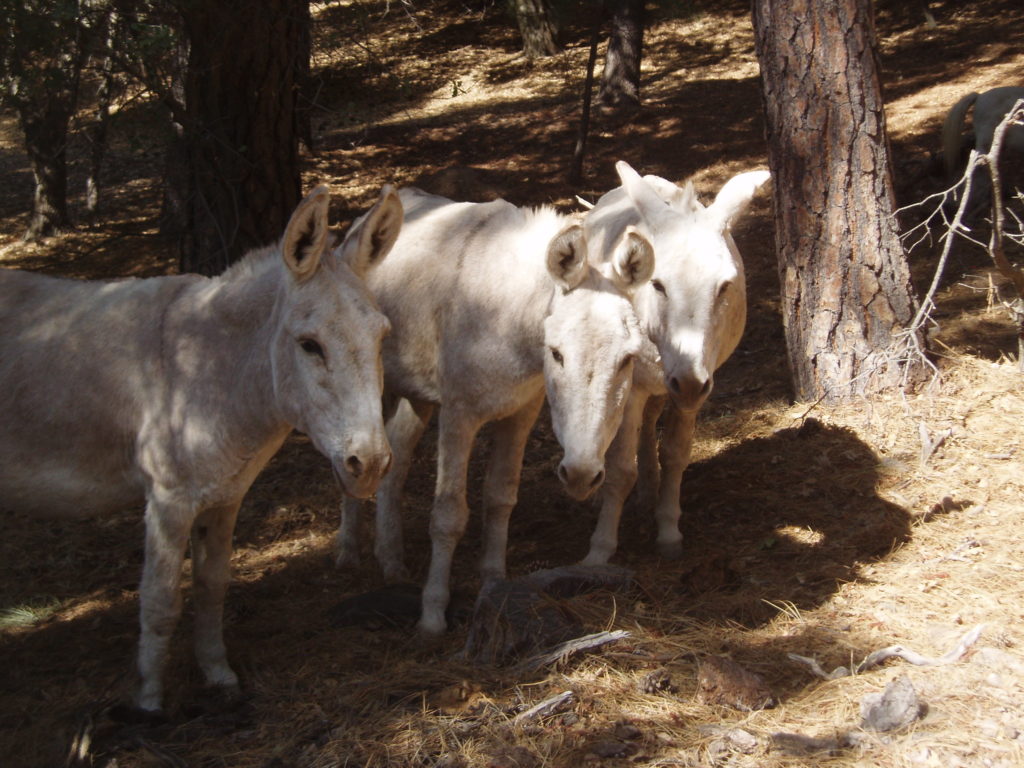
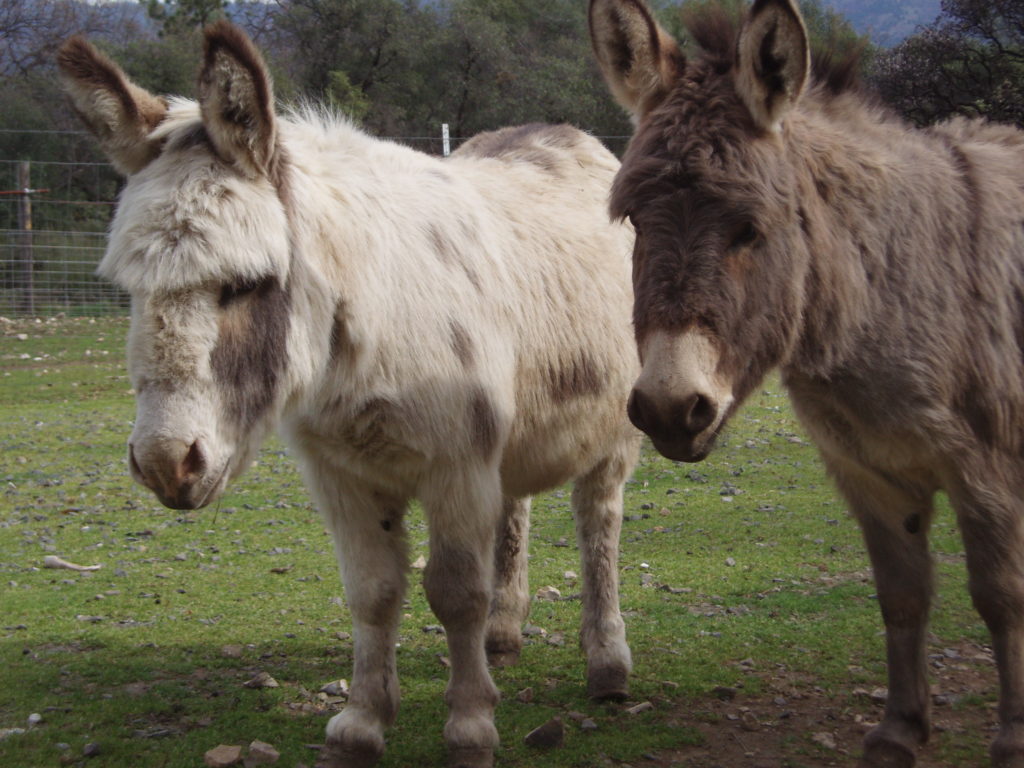
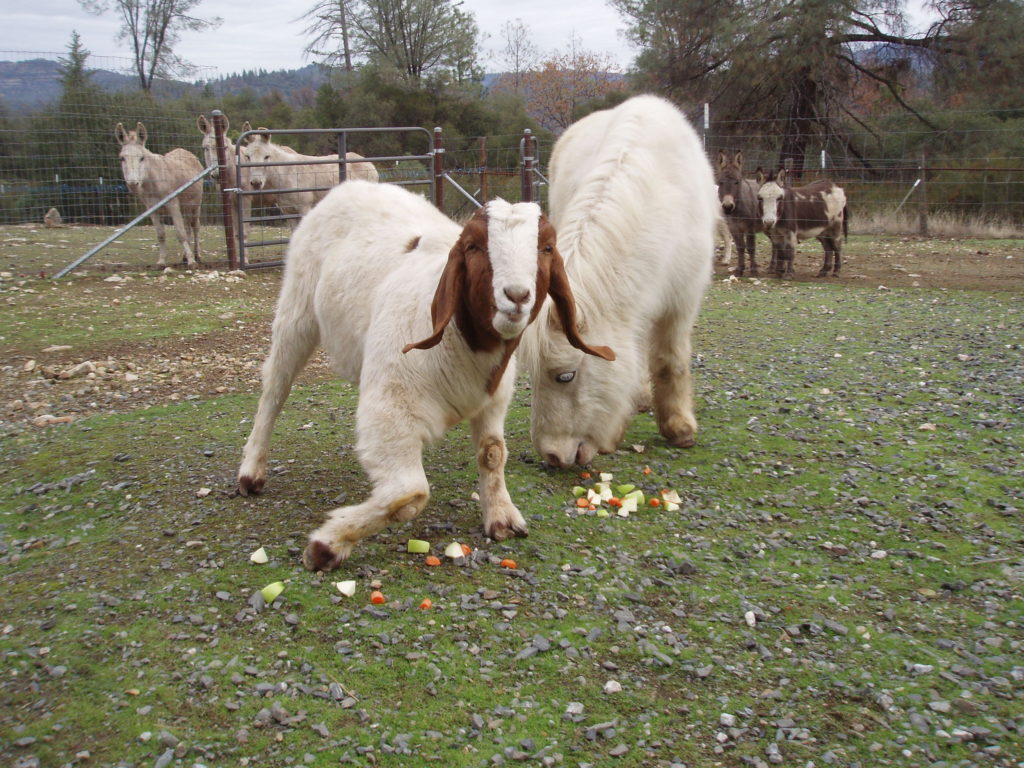
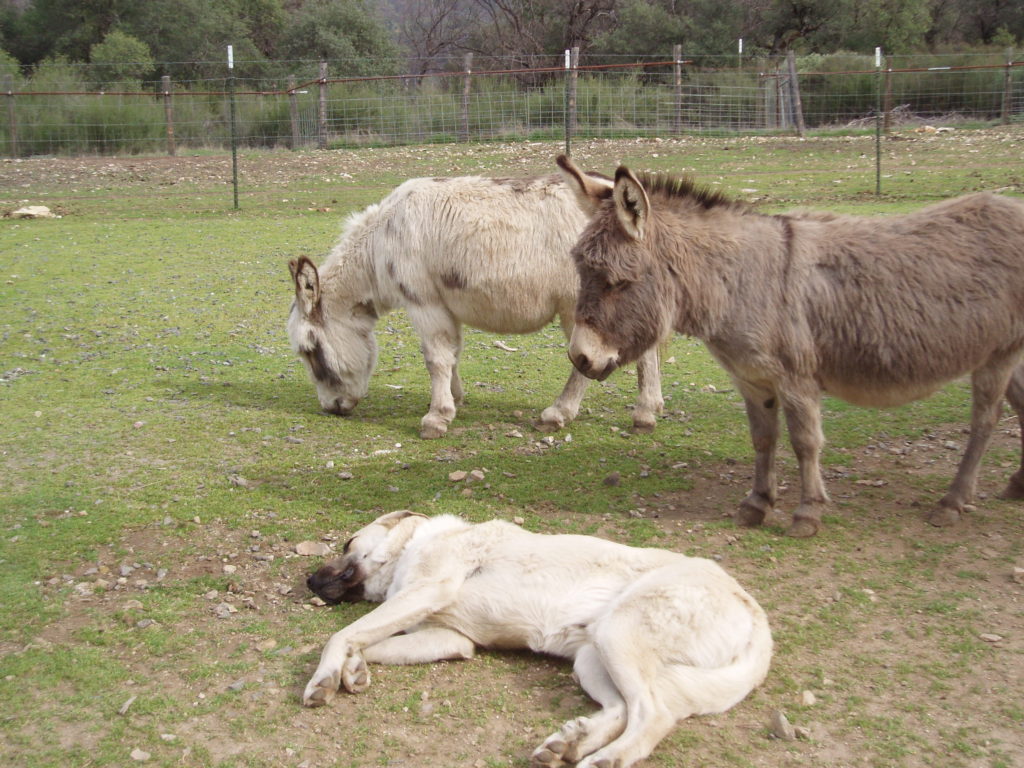
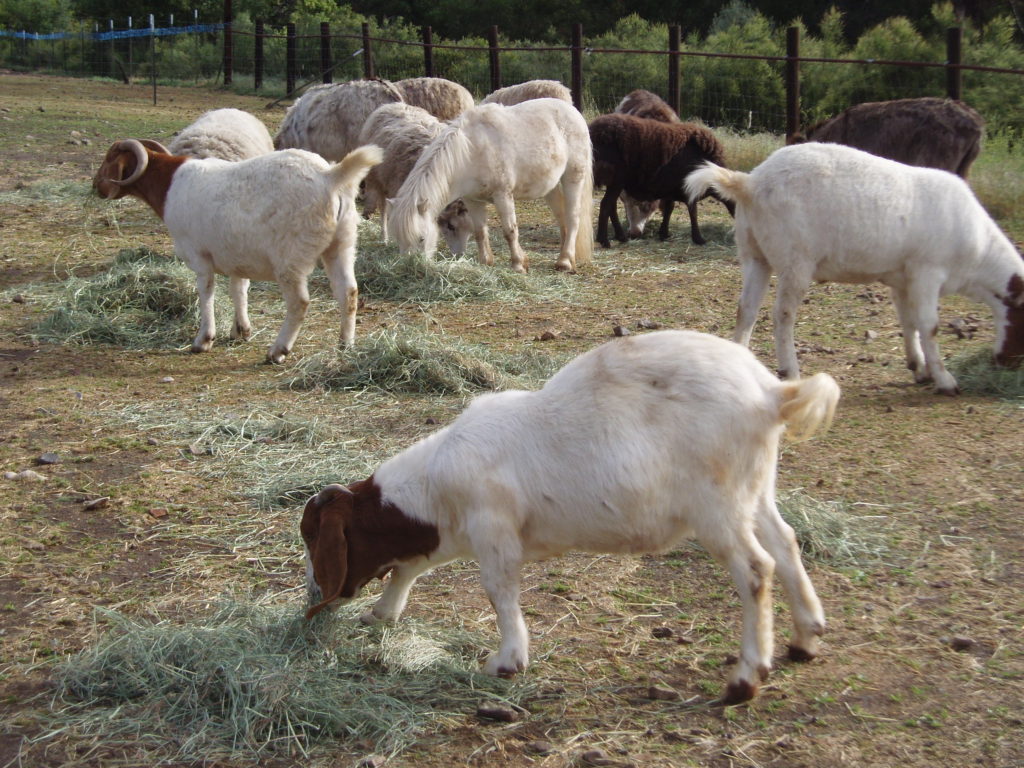
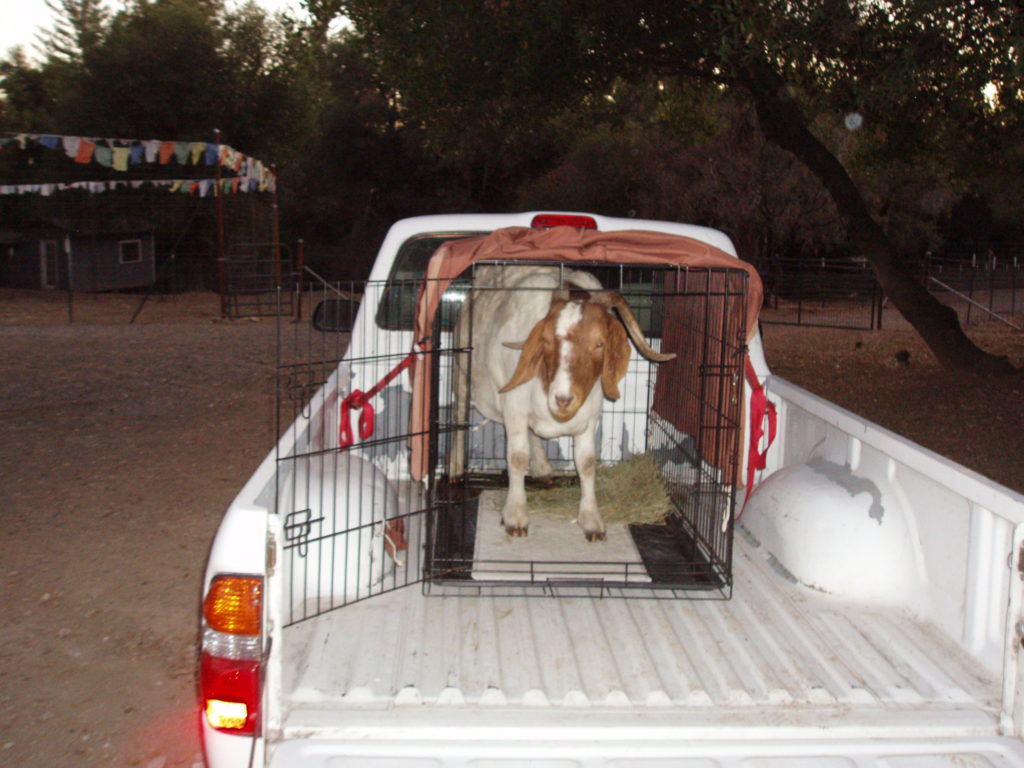
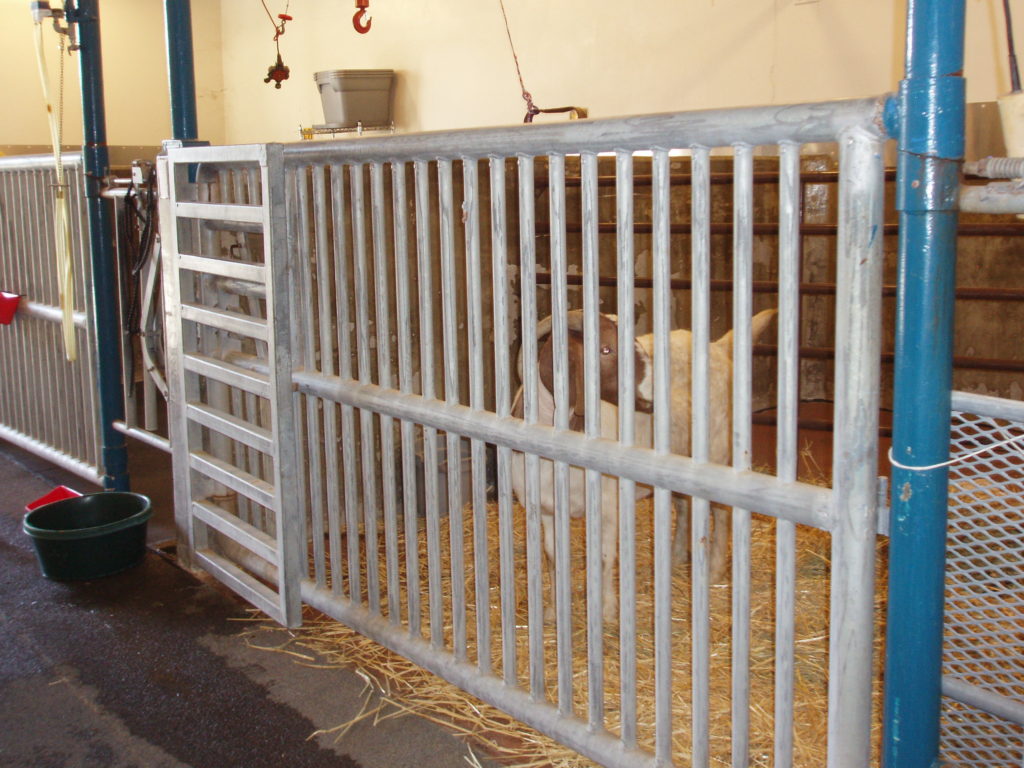
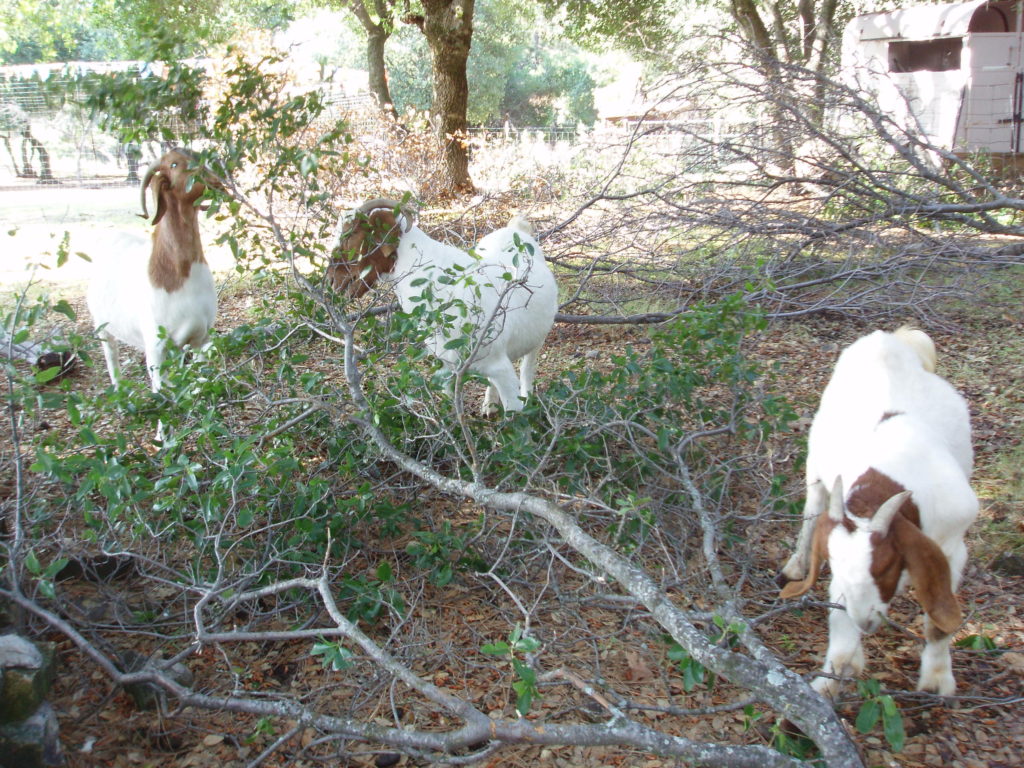
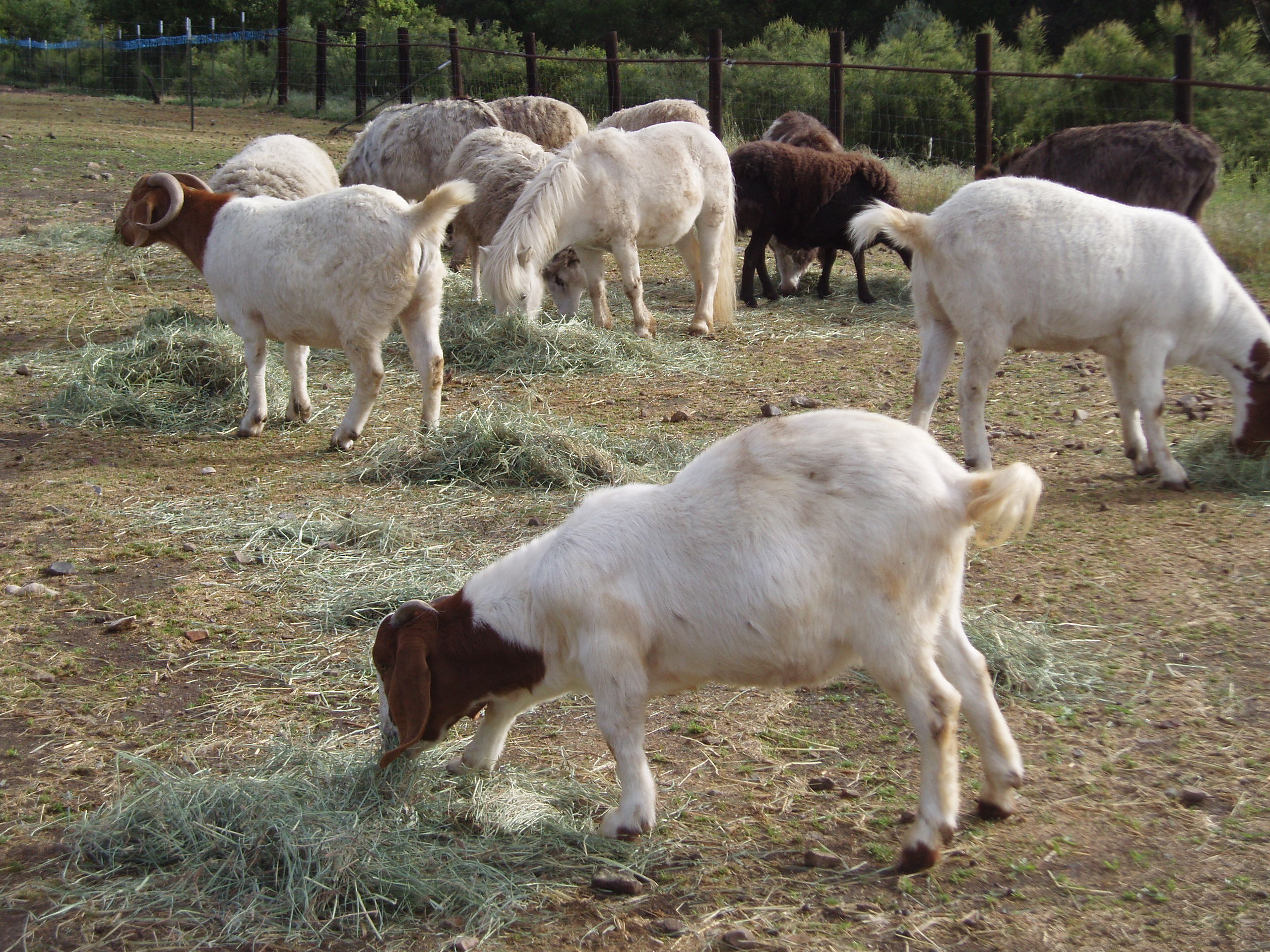
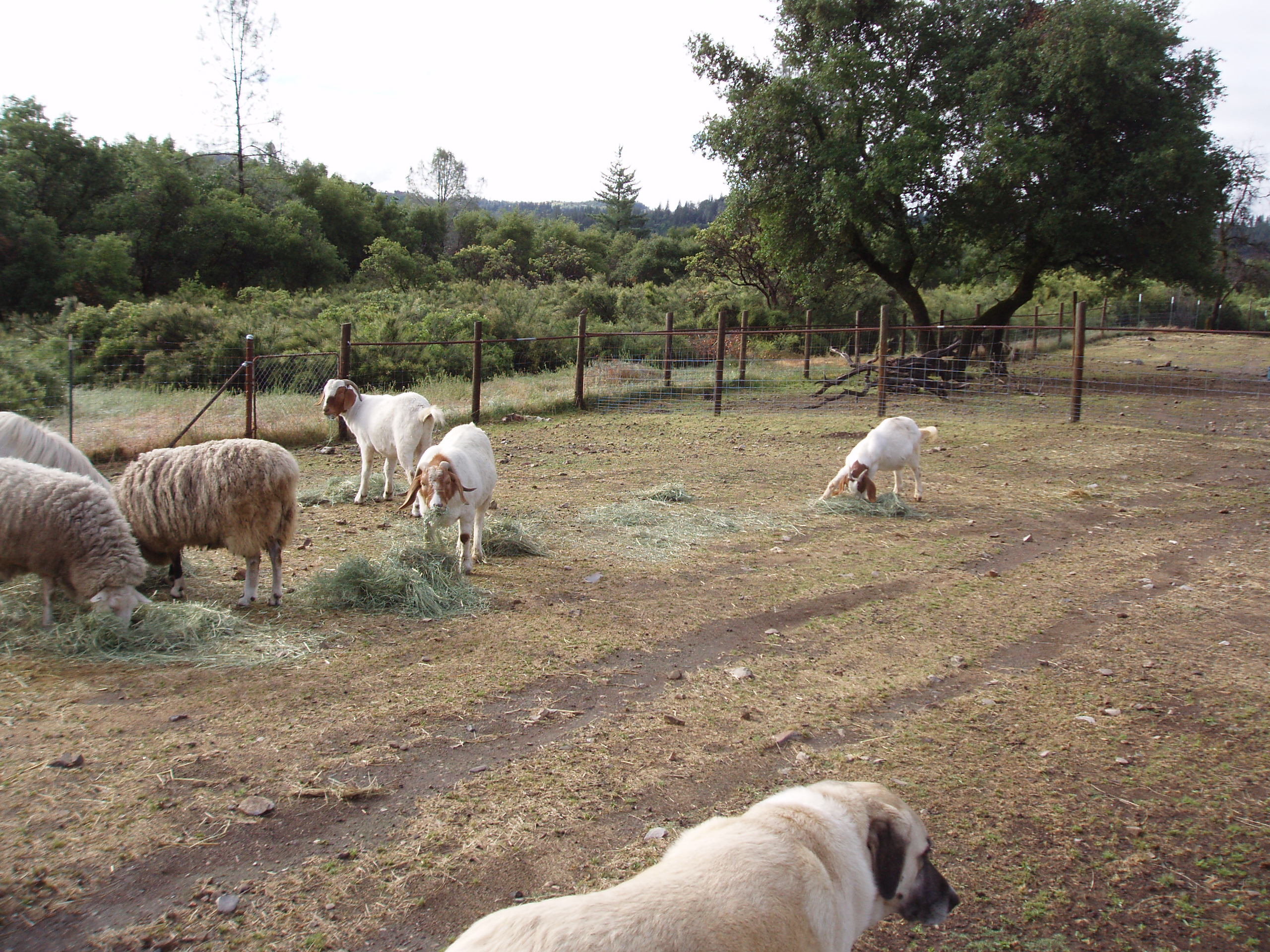 Caerwyn ate breakfast with them for the next two days and I saw that he had reached a new stage. So I opened all the inner gates around the barn and house and let everyone be together. At first, I stayed to make sure no one pushed him around, but gradually I saw that he could move away when he needed to, so I went back to my work and just checked on him periodically. On one of these checks, I found him eating from the same branch in companionable chewing with his goat brothers, Joyful and Baerwyn.
Caerwyn ate breakfast with them for the next two days and I saw that he had reached a new stage. So I opened all the inner gates around the barn and house and let everyone be together. At first, I stayed to make sure no one pushed him around, but gradually I saw that he could move away when he needed to, so I went back to my work and just checked on him periodically. On one of these checks, I found him eating from the same branch in companionable chewing with his goat brothers, Joyful and Baerwyn.
